Welcome to our comprehensive guide on crafting the perfect letter template for a board director's audit committee report! In today's fast-paced business environment, clear and effective communication is essential, especially when it comes to important financial matters. This guide will walk you through the key elements and language needed to make your report both informative and engaging. So, let's dive in and explore how to elevate your audit committee reportsâread on to learn more!
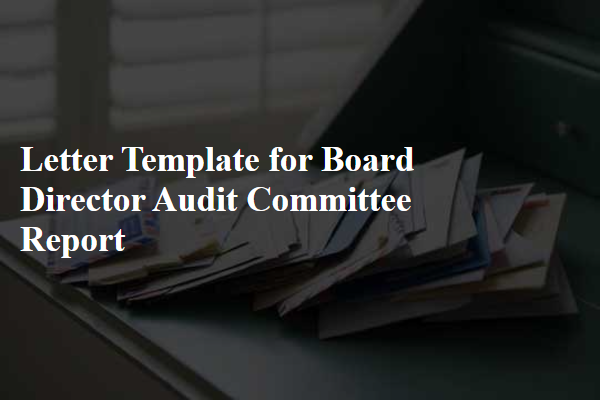
Objective and Scope of the Audit
The objective of the audit conducted by the Board Director Audit Committee was to evaluate the financial statements of the organization, ensuring compliance with Generally Accepted Accounting Principles (GAAP) and regulatory frameworks. The scope encompassed a thorough review of the fiscal year 2023 performance, focusing on core financial documents such as balance sheets, income statements, and cash flow statements. Additionally, the audit assessed internal controls and risk management processes implemented within the organization to identify areas for improvement. Specific emphasis was placed on examining transactions exceeding $100,000 and any significant variances from the budget. The audit ensured transparency, aiming to provide stakeholders with accurate and reliable financial information reflective of the organization's operational integrity.
Summary of Findings and Recommendations
The audit committee conducted a comprehensive evaluation of the financial practices and compliance measures within XYZ Corporation for the fiscal year ending December 31, 2023. The review included analyzing key financial statements, such as the balance sheet and income statement, alongside assessing internal control systems and compliance with regulations established by the Securities and Exchange Commission (SEC). Notable findings included discrepancies in inventory valuation practices, revealing a potential misstatement of approximately $500,000. Recommendations offered by the committee include implementing robust inventory management software and enhancing staff training on compliance protocols, aiming to mitigate financial risks and ensure adherence to regulatory standards. The committee underscores the importance of regular audits to maintain transparency and build stakeholder trust.
Risk Assessment and Management
The audit committee report on risk assessment and management provides an overview of potential challenges faced by the organization, including operational, financial, and compliance risks. Comprehensive analysis occurs during quarterly assessments, with specific emphasis on regulatory changes, cybersecurity threats, and market fluctuations. Recent events, such as the 2023 rising inflation rates at 7.5% and new data protection regulations established by the General Data Protection Regulation (GDPR) in the European Union, warrant immediate attention. The organization maintains a proactive risk management framework, including regular evaluations of internal controls and compliance measures. Stakeholder engagement and transparent reporting are crucial elements, ensuring that all parties are informed about risk exposure and mitigation strategies, particularly in maintaining adherence to established guidelines and ethical standards. Additionally, ongoing training programs for employees enhance awareness and preparedness against potential risks, fostering a culture of accountability within the organization.
Compliance with Regulations and Standards
The annual audit committee report highlights the critical assessment of compliance with regulations and standards within the organization. A thorough review (January 2023 - December 2023) was conducted, focusing on adherence to the Sarbanes-Oxley Act (SOX), which mandates strict accountability for financial reporting. The compliance assessment encompassed various regulatory bodies, including the Securities and Exchange Commission (SEC), ensuring transparency and integrity in financial practices. The audit identified areas for improvement related to internal controls and overall regulatory adherence, aiming to mitigate risks of non-compliance. The committee unanimously recommends the implementation of enhanced training programs for staff to foster a culture of compliance across all departments.
Future Action Plans and Monitoring
The upcoming audit committee report outlines essential future action plans and monitoring strategies designed to enhance governance and operational efficiency within the organization, particularly focusing on areas identified during the recent 2023 audit. Key initiatives will include the implementation of a comprehensive risk assessment framework to identify potential vulnerabilities, followed by the establishment of quarterly monitoring protocols to ensure adherence to regulatory requirements and internal policies. Additional plans involve conducting targeted training sessions for staff members in compliance and ethical standards, aiming to foster a culture of accountability and transparency. Furthermore, regular reviews of financial statements and internal controls will be scheduled to maintain integrity in financial reporting, thus ensuring the organization remains aligned with best practices and legislative mandates. The success of these action plans will be measured through performance metrics established in advance, with periodic reporting to the board of directors to facilitate informed decision-making.
Letter Template For Board Director Audit Committee Report Samples
Letter template of executive summary from audit committee for board directors
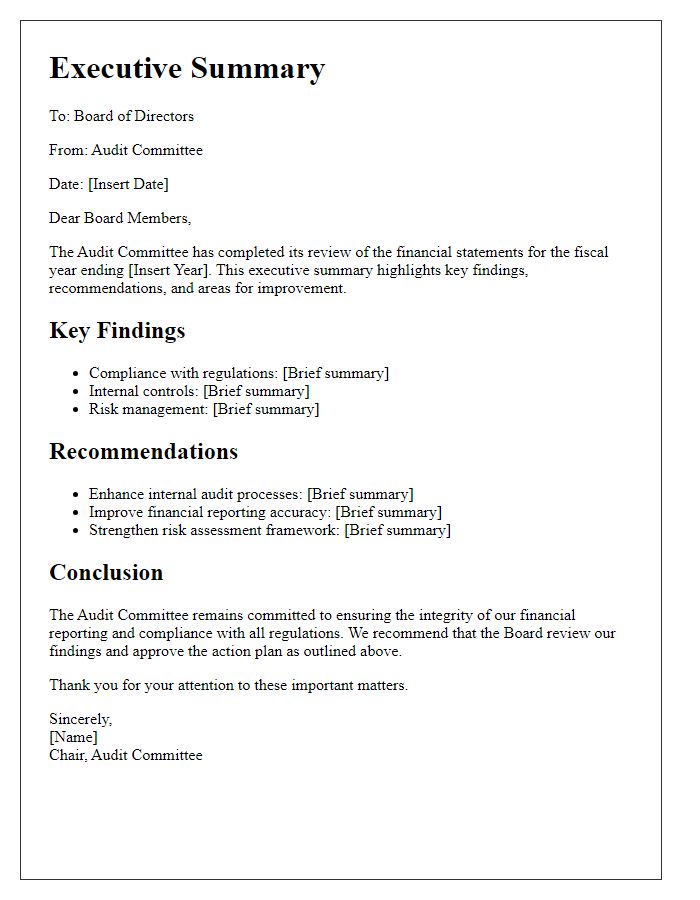
Letter template of audit committee insights for board director consideration
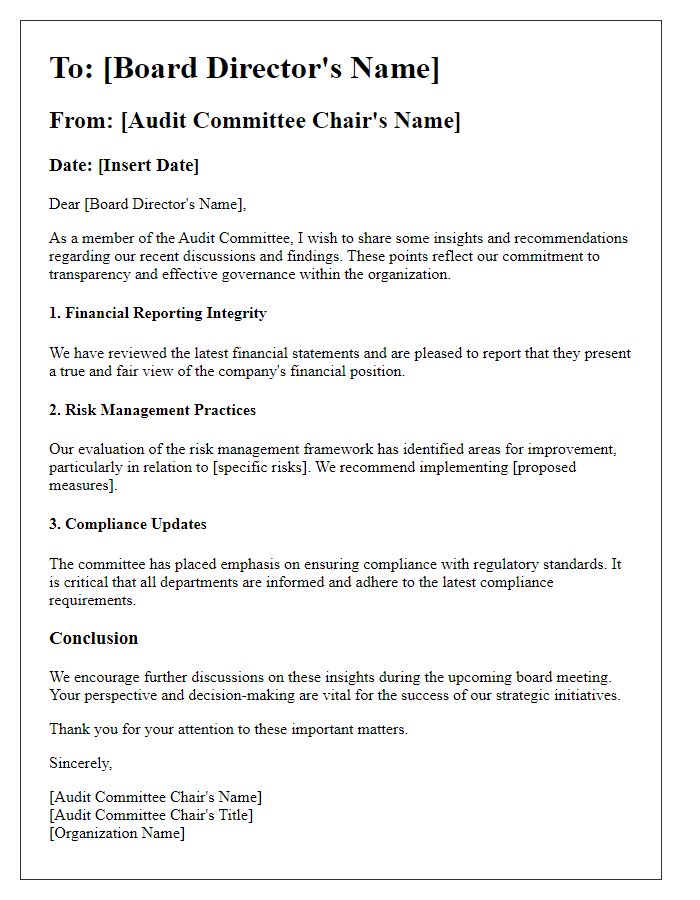
Letter template of audit committee evaluation for board director distribution
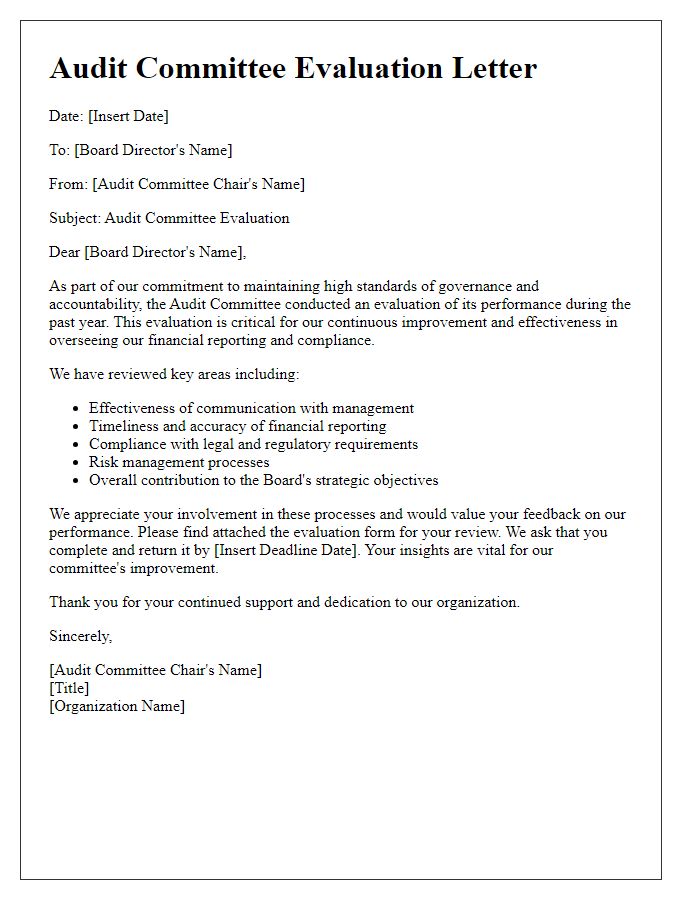

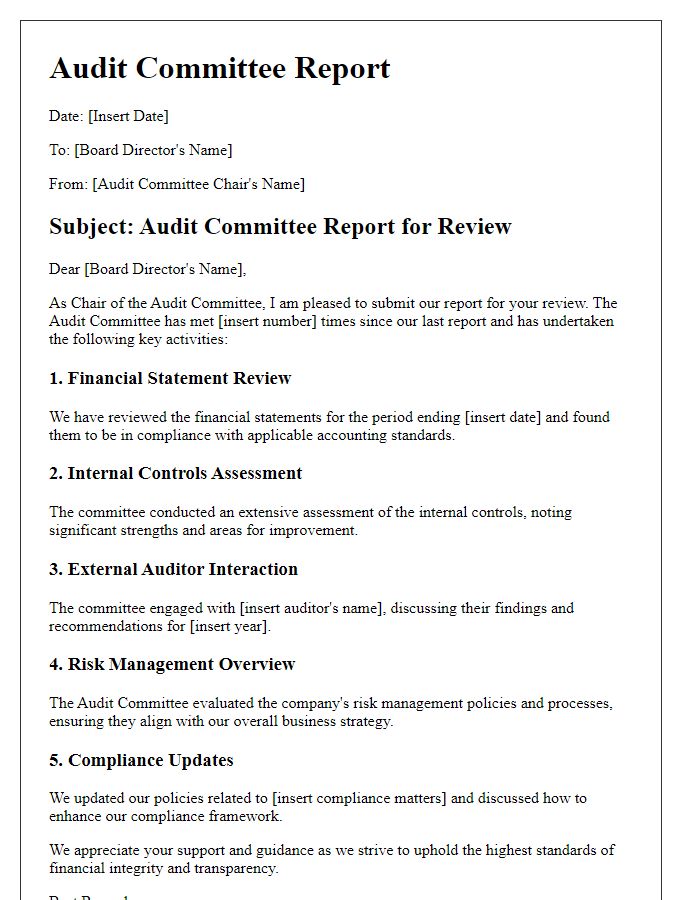
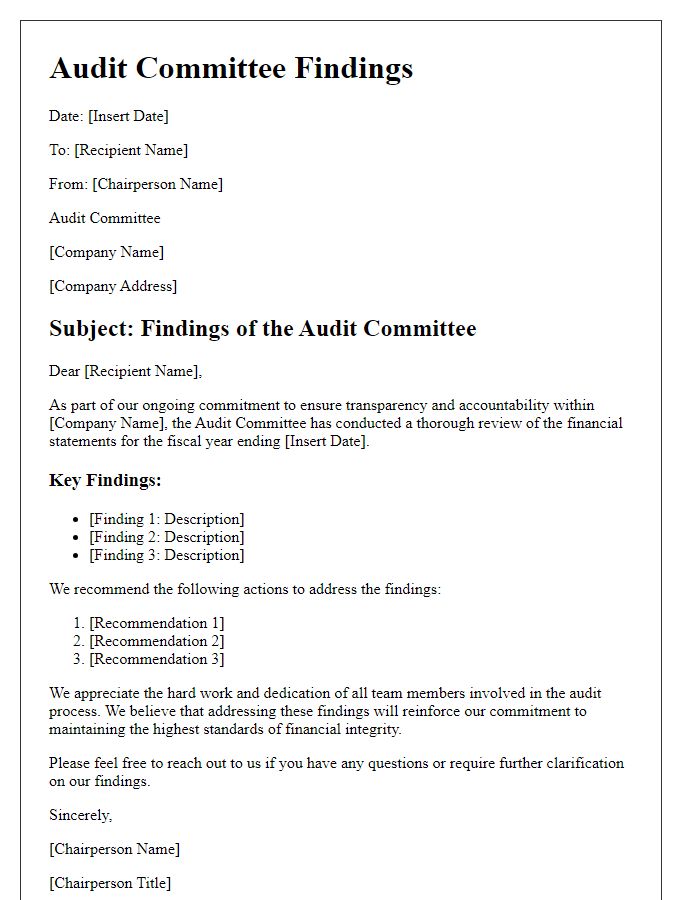
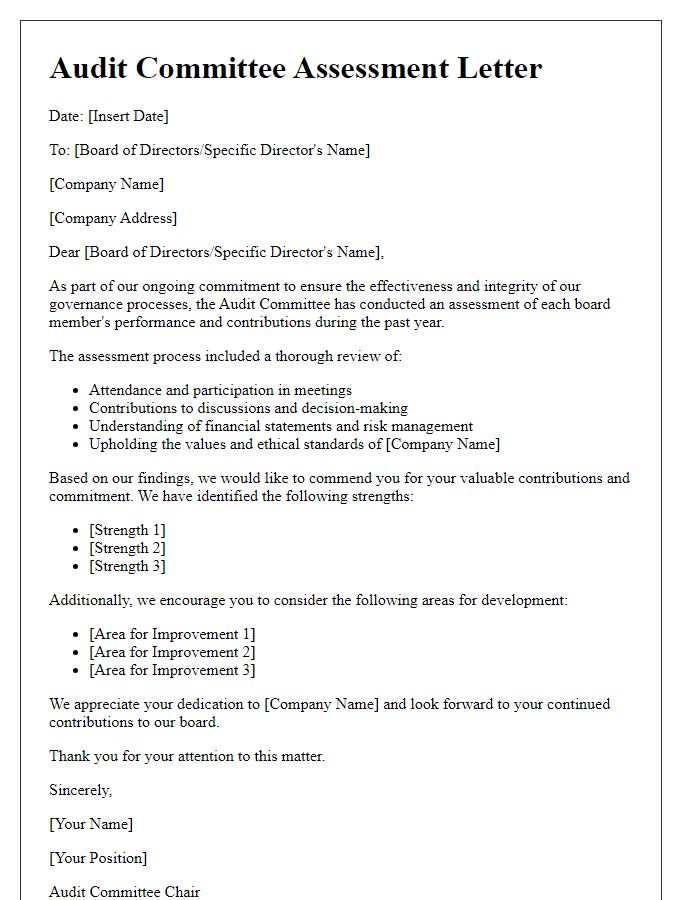
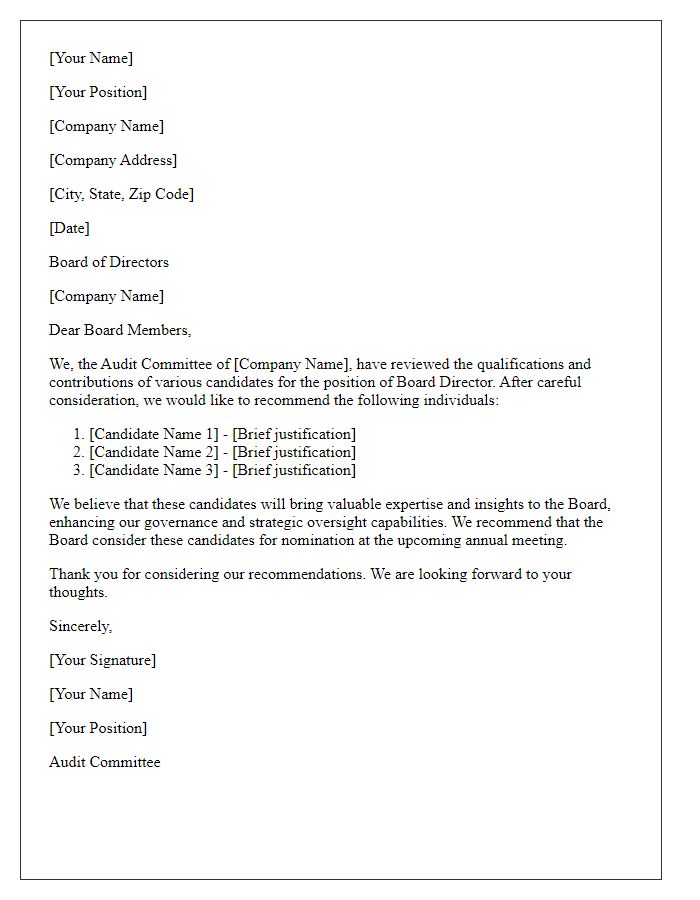
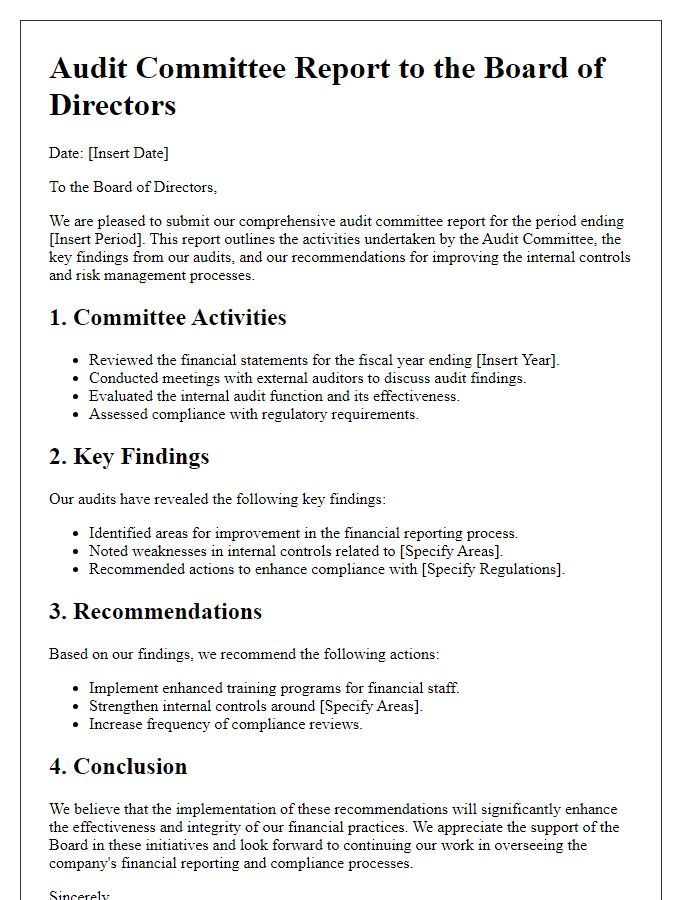
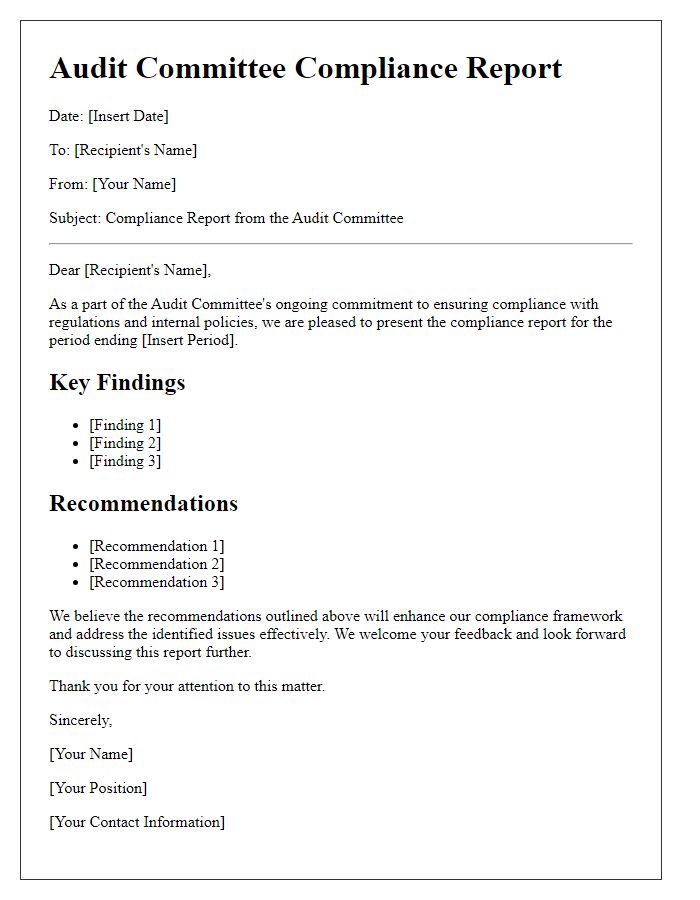
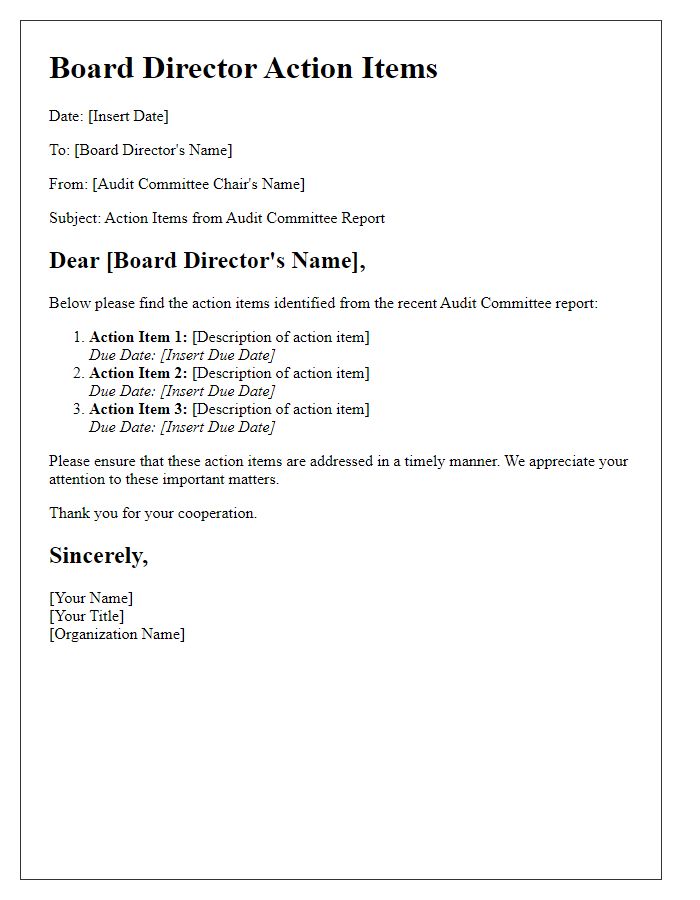


Comments